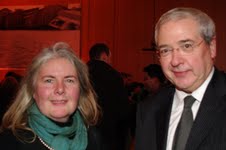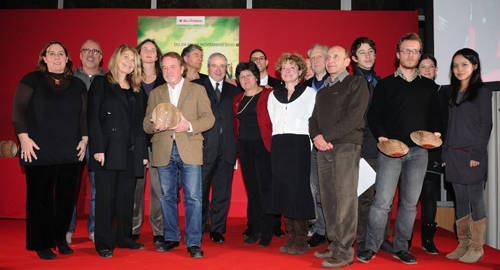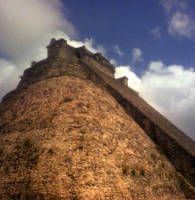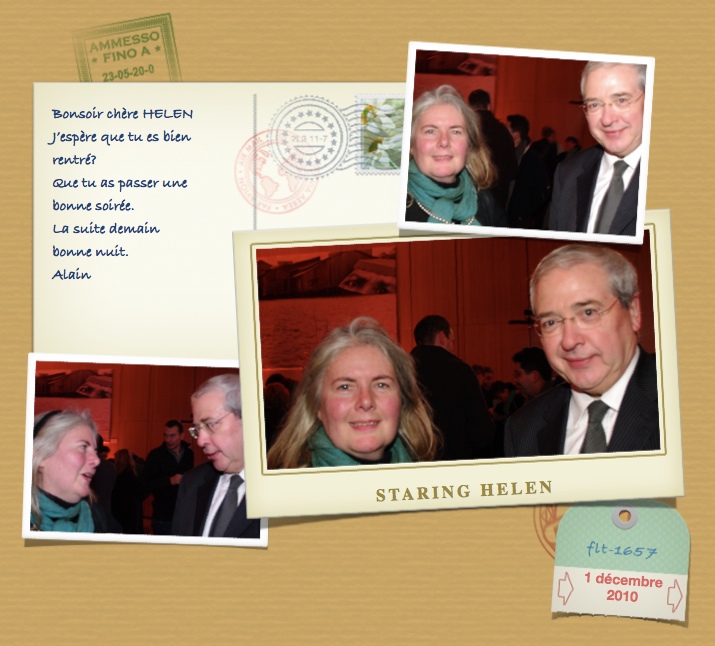|
|
||
|
Pro Tools
FILMFESTIVALS | 24/7 world wide coverageWelcome ! Enjoy the best of both worlds: Film & Festival News, exploring the best of the film festivals community. Launched in 1995, relentlessly connecting films to festivals, documenting and promoting festivals worldwide. Working on an upgrade soon. For collaboration, editorial contributions, or publicity, please send us an email here. User login |
ILeL’ÎLE ENCHANTÉE (LutèceFilm, FR 1926) Film restaurato dagli Archives Françaises du Film du CNC con i fondi del Ministero della Cultura per la salvaguardia del patrimonio cinematografico. / Restored by the Archives Françaises du Film/CNC, under the auspices of the Ministry of Culture’s film preservation plan.
In his heyday as a filmmaker in the 1920s, Henry Roussell was held in high regard by professionals, critics, and peers. Two of his early films, La Faute d’Odette Maréchal (1920) and Visages voilés, âmes closes (1921), even enjoyed the rare privilege of U.S. distribution. When Paramount created a European production outpost in Paris, it chose Roussell to write and direct its first French production, Les Opprimés (1922), a 1.5 million-franc costume drama set in Spanish-occupied Flanders in the 17th century, which made a screen star of Raquel Meller. The Spanish singer gratefully commissioned Roussell to write, produce, and direct a film for her: the result was Violettes impériales (1923), one of the decade’s biggest commercial successes (which enjoyed an afterlife as a stage operetta and film musical). Abel Gance admired Roussell enough to ask that he collaborate as an associate director on his upcoming production of Napoléon; Roussell politely declined (as it turned out, he was preparing his own Bonapartist romance, Destinée, but Gance didn’t take offense). And when Roussell briefly returned to his erstwhile métier to co-star in Jacques Feyder’s Les Nouveaux messieurs (1928), the industry warmly applauded the man and the artist for his professionalism, patrician irony, and taste.  09.10.2009 | Helen's blog Cat. : Abel Gance Abel Gance André Antoine’s The Corsican Brothers André Roanne André Roanne Archbishop Armed Attack Artist cameraman Cinema of France Corsica Director Entertainment Entertainment Film Gabriel Lestrange Gaston Dumesnil Gaston Jacquet Georges Jacouty Geymond Vital (Ferrari) Henri Fescourt Henry Roussell Henry Roussell Jacqueline Forzane Jacques Feyder Jacques Feyder Jean Garat Jules Hamon Jules Kruger Mario Nasthasio Martino della Rocca Maurice Velle Napoleon Odette Maréchal Paris Paul Jorge Paul Portier Person Career Pierre Delmonde priest Raquel Meller Raquel Meller Religion Religion Renée Héribel Roby Guichard Rolla Norman Sergeant Silent film singer technician War War
|
LinksThe Bulletin Board > The Bulletin Board Blog Following News Interview with EFM (Berlin) Director
Interview with IFTA Chairman (AFM)
Interview with Cannes Marche du Film Director
Filmfestivals.com dailies live coverage from > Live from India
Useful links for the indies: > Big files transfer
+ SUBSCRIBE to the weekly Newsletter Deals+ Special offers and discounts from filmfestivals.com Selected fun offers
> Bonus Casino
User imagesAbout HelenThe EditorUser contributionsUser links |

























 Helen Dobrensky
Helen Dobrensky 


